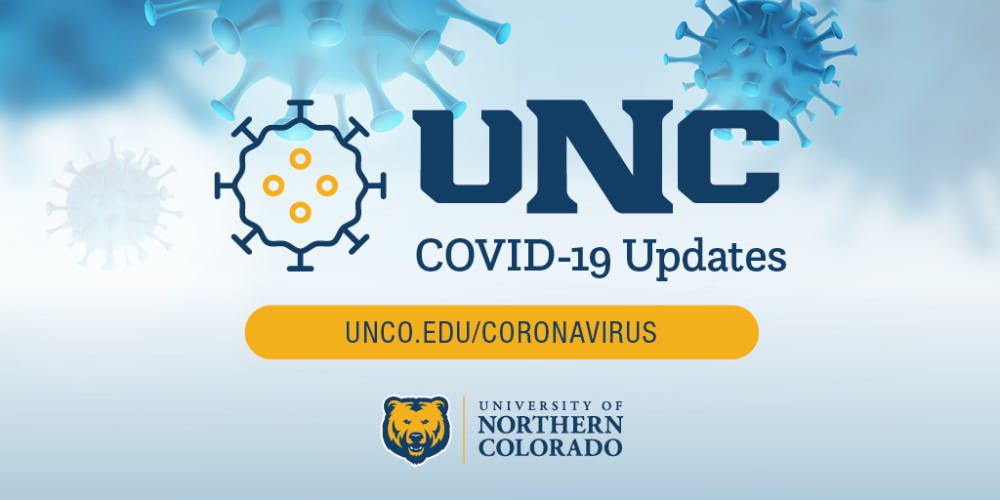Students at the University of Northern Colorado are responsible for making the choice to self-report if they have tested positive for COVID-19. But students are not required to tell the school if they do not live on campus or do not use the school clinic to get tested.
Students are expected and encouraged to self-report a positive COVID result. This can be done confidentially at https://www.unco.edu/coronavirus/health-alerts/. The UNC coronavirus website sites that severe consequences, like suspension or expulsion, could follow a student who does not act according to guidelines

“The UNC contact-tracing team is immediately notified of anyone who tests positive at the Student Health Center,” said Cindy Vetter, the director of Student Business Services. “If students or employees are tested off-campus, UNC only finds out if the individual alerts UNC, or if they disclose to the investigator at the Weld County Department of Public Health and Environment (WCDPHE), or other county health departments, that they’re a UNC student or employee. ”
This is because of HIPPA, better known as doctor-patient confidentiality. A student’s health information and results can only be told after permission is granted.
This concerns many students.
“If students test positive, will professors and classmates be notified that there was potential exposure to COVID?” a concerned student asked.
“If the classroom set-up has remained with the six-feet social distancing, the mask policy has been adhered to and classroom disinfecting is occurring on schedule, then, generally, classmates would not be notified unless the health department has determined other direct contacts have occurred,” Vetter said in an email.
Because of the limited seating capacity within each in-person classroom, as well as the cleaning processes for each classroom, students would not be notified if a classmate has tested positive. This same idea was expressed during the weekly operational update call on Sept. 10 by the associate vice-president for administration, Blaine Nickeson.

“One of the points I was making in that meeting was, that holding classes is one of the lower risk activities that we actually do on a college campus,” Nickeson said.
“One of the key factors that is questioned is, ‘Has the infected person been in continuous 15-minute contact with someone closer than six feet without a mask?” Vetter said in an email.
With ongoing efforts to slow the spread of COVID-19, there have been few reported cases since the beginning of the school year. However, students are still expressing concern about the methods of contact tracing and notification happening.
“If students have the option not to disclose to the university, then how are we sure that classmates and professors aren’t being affected?” an anonymous student asked.
This concern comes on the heels of big outbreaks at other college campuses like the University of Colorado Boulder and the University of Colorado Springs. This was mentioned during the weekly operational update call on Oct. 1st by Nickeson.
“They’re up over 1,600 positive student cases, which, I would mention, is larger than our freshmen class,” Nickeson said about CU Boulder.
As of Oct. 1, there are 21 positive cases of COVID from students at UNC. Only four of the positive students are being housed in the isolation rooms. The rest of the positive students live off-campus, indicating how responsible students at UNC are taking the pandemic.
UNC’s testing abilities over the fall semester are reportedly getting better.
“One thing that Blaine has continued to emphasize with me and others is that our ability to test students is getting stronger and stronger and stronger, and the cost of the testing is going down,” said Provost Mark Anderson, the chief academic officer of the Division of Academic Affairs.
For more information, visit unco.edu/return-to-campus/
symptoms-testing/.







